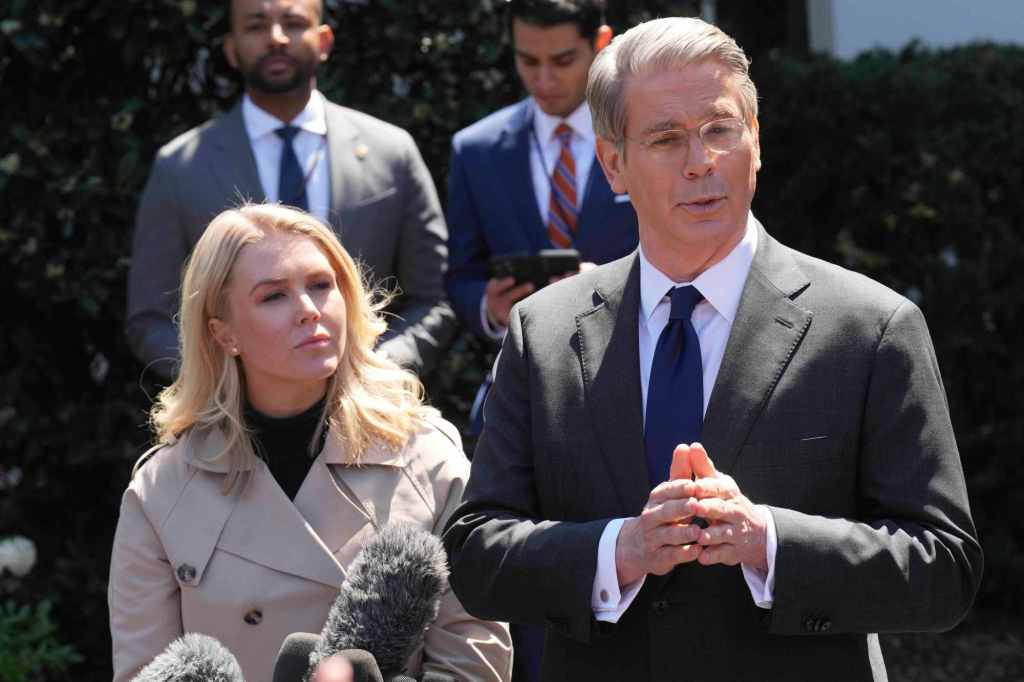
If U.S. tariffs on imports raise prices on American consumers, should we care if the government calls them taxes or fees?
Throughout his time as Treasury Secretary, Scott Bessent has regularly fought against claims that the tariffs adored by his boss, President Donald Trump, are really just taxes on consumers.
“Tariffs are a surcharge, not a tax,” Bessent told a reporter this week. “They could be paid by the exporter, they could be paid by the country.”
Bessent likely thinks that’s a great point, but he shouldn’t drop the mic just yet. Regardless of the word games, Americans are suffering from the end result.
We are paying higher prices as a result of Trump’s tariffs. According to analysis from the Tax Foundation, Trump’s tariffs have raised consumer prices by 4.9 percentage points.
We’re paying more so the word games matter little, but Bessent does have an interest in calling tariffs fees. Fees are much more politically palatable (though I have no idea why) and the matter is before the U.S. Supreme Court.
But make no mistake: tariffs are taxes.
When it is a broad-based sales tax, the tax is levied when the goods are purchased by the consumer. When it is a tax on imports (e.g. a tariff) the tax is levied when the importer takes possession of the goods.
Just like sales taxes, the ultimate burden of tariffs can theoretically be paid by the consumers or the foreign manufacturer. Previous experience has demonstrated, however, that they’re mostly paid by American consumers, which is why prices on imports keep going up.
Bessent should know all this and is simply towing the party line.
“When you go and get your driver license, you pay a fee,” Bessent added. “Is that a tax?”
Debating the meaning of taxes and fees might be an ok rhetorical strategy, but invoking the DMV is not. Not only does this give listeners PTSD remembering the last painful visit to one of the least popular American government institutions, it also reminds us that the government has its hand in our wallets at every turn.
Apparently, it’s not enough that our tax dollars fund DMV operations; we need to pay additional charges as well. What is that ID charge for, exactly? To fund something I already funded?
It makes no sense, and neither do tariffs.
We’re told regularly that tariffs are essential to stop other countries from ripping off Americans. So the solution is for America to rip off Americans instead?
Not only are tariffs at least partially passed through to consumers, but, as the Tax Foundation points out, tariffs hurt in indirect ways as well.
When the cost of imports rise, American firms and consumers might switch to cheaper, domestically-available substitutes. But the makers of these alternatives have an incentive to increase prices to stay competitive with the tariffed imports. That’s assuming that there is a cheaper substitute.
One recent study of the effect of tariffs on the cost of wine imports published by a team of economists in the National Bureau of Economic Research found that the cost of bottles of wine exceeded the cost of the tariff even when the tariff itself wasn’t entirely passed on to consumers.
“Although pass-through at the border was incomplete, our estimates indicate that U.S. consumers paid more than the government received in tariff revenue, because domestic markups amplified downstream price effects,” the team of economists wrote.
Though the research is novel, the findings are not. Tariffs were always going to raise the costs to consumers. It seems the Trump Administration had hoped that the pain would be short-term while trade deals were negotiated. This of course was foolish in light of the fact that trade deals are incredibly complicated and take a long time to finalize.
Free trade works. Even when certain industries shrink and leave, new opportunities arise, and consumers benefit from greater, and cheaper, options. There are many other benefits to free trade, but the one that affects most Americans at the moment is the impact on household budgets.
Americans need relief. Trump was elected in part to bring down the costs of goods and services; he can start by getting rid of his tariffs, no matter what he calls them.
Matt Fleming is an opinion columnist with the Southern California News Group. Find him on X at @FlemingWords or email him at flemingwords@gmail.com.



